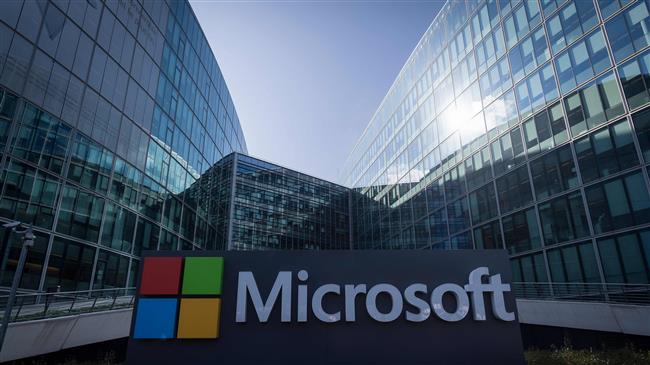Microsoft to give Pentagon access to ‘best technology’
US software giant Microsoft has pledged to give the Pentagon access to its "best technology" despite criticism from employees, breaking with other tech companies that are reconsidering military companies after facing internal backlash.
Brad Smith, Microsoft’s president and chief legal officer, said Saturday that the corporation was "going to provide the US Defense Department with access to the best technology ... all the technology we create. Full stop."
Speaking during a panel at the Reagan National Defense Forum at the Ronald Reagan Presidential Library in Simi Valley, California, Smith acknowledged that there was “some angst" among the company’s workforce about involvement in military contracts but Microsoft was not going to change course.
That’s opposite to what Google did in June after facing pressure from thousands of employees about involvement in the Pentagon’s global drone program.
The search engine company refused to review a contract that allowed the military to use Google's artificial intelligence tools to analyze drone footage.
Smith, however, said it was possible to cooperate with the military and quell such concerns at the same time.
"We want Silicon Valley to know just how ethical and honorable a tradition the military has," he said, noting that artificial intelligence and autonomous systems were going to have broad implications in all fields including the military.
He said the company remains open to hearing employee opinions and would "engage to address the ethical issues that new technology is creating."
Smith said he had already received feedback from workers about the issue, including an email from an employee who grew up in Belgrade, Serbia -- which was bombed by NATO forces in 1999.
The employee told Smith that he needed to think through Microsoft's reasoning for accepting military contracts. Smith refused to mention whether Microsoft had taken any action or changed any policy as a result.
To address growing needs for newer technologies, the Pentagon has established the Defense Innovation Unit (DIU), which provides capital to tech companies willing resolve problems faced by the US military.
Following Google’s decision to cease cooperation with the Pentagon on the Project Maven artificial intelligence contract, DIU director Michael Brown said his agency was getting numerous offers from other commercial companies that were interested in working with the US military.

US warplanes strike Yemeni capital in new acts of aggression

Yemen: US fails in its aggression since day one; Trump ‘accountable’ for fatalities

Yemen strikes vital Israeli targets deep inside occupied land, US warships
VIDEO | Exclusive: Yemeni eyewitnesses say US warplanes targeted civilians in their homes
VIDEO | Press TV's news headlines
‘Guardians of Revolution’: IRGC warns enemies it is at ‘peak of all-out readiness’
Microsoft collaboration in Gaza genocide
VIDEO | Senior Hamas-allied leader killed in Israeli drone strike south of Beirut
Syria arrests Islamic Jihad officials after US ties sanctions relief to ban on Palestinian groups
Gaza children dying not only from bombs, but hunger: Health Ministry
Israeli strikes kill nearly 10 Gazans, including two children, in new aggression








 This makes it easy to access the Press TV website
This makes it easy to access the Press TV website